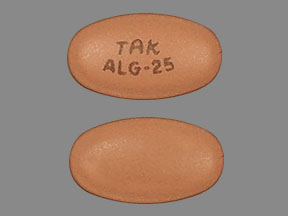
Alogliptin Coupons & Savings Card – Discount Prices from $120.78
Generic for: Nesina
My prescription
Edit
25MG, Alogliptin (30 Tablets)
Select pharmacy

CVS
$120.78
COUPON PRICE
Walmart
$147.30
COUPON PRICE
Albertsons
$151.69
COUPON PRICE
Walgreens
$166.65
COUPON PRICEAlogliptin savings card
Show this card to your pharmacist
CVS
$120.78
BIN
ID
PCN
GRP
019876
LHF15864E6
CHIPPO
LHX
Powered by
More prescriptions for diabetes type 2
More prescriptions for diabetes type 2
Price history for Nesina (brand) & Alogliptin (generic)
30 Tablets, 25MG
Average retail price for Nesina
Average retail price for Alogliptin
Average SaveHealth price for Alogliptin
Our price history data is based on aggregated prescription data collected from participating pharmacies in America. Our prescription data updates daily to reflect the latest price changes. If you notice a missing data point, it means there wasn't sufficient data available to generate a monetary value for that date.
We analyzed Alogliptin prices for (25MG, 90 Tablets) over the last 12 months. The average retail price was $450.00, while the average price using the SaveHealth discount card was $428.87. That's a savings of approximately 4.70% when using our Alogliptin coupon.
Compared to the generic version, Nesina had an average price of $508.99 over the same time period. With the SaveHealth savings card, Alogliptin is 15.74% cheaper on average than Nesina.
*Retail prices are based on pharmacy claims data, and may not be accurate when we don't have enough claims.
Alogliptin dosage forms
Dosage Quantity Price from Per unit 6.25MG 30 Tablets $120.78 $4.03 12.5MG 30 Tablets $120.78 $4.03 12.5MG 90 Tablets $333.75 $3.71 12.5MG 3000 Tablets $10274.60 $3.42 12.5MG 9000 Tablets $30771.20 $3.42 25MG 90 Tablets $333.75 $3.71 25MG 30 Tablets $120.78 $4.03 25MG 3000 Tablets $10274.60 $3.42 25MG 9000 Tablets $30771.20 $3.42
| Dosage | Quantity | Price from | Per unit |
|---|---|---|---|
| 6.25MG | 30 Tablets | $120.78 | $4.03 |
| 12.5MG | 30 Tablets | $120.78 | $4.03 |
| 12.5MG | 90 Tablets | $333.75 | $3.71 |
| 12.5MG | 3000 Tablets | $10274.60 | $3.42 |
| 12.5MG | 9000 Tablets | $30771.20 | $3.42 |
| 25MG | 90 Tablets | $333.75 | $3.71 |
| 25MG | 30 Tablets | $120.78 | $4.03 |
| 25MG | 3000 Tablets | $10274.60 | $3.42 |
| 25MG | 9000 Tablets | $30771.20 | $3.42 |
